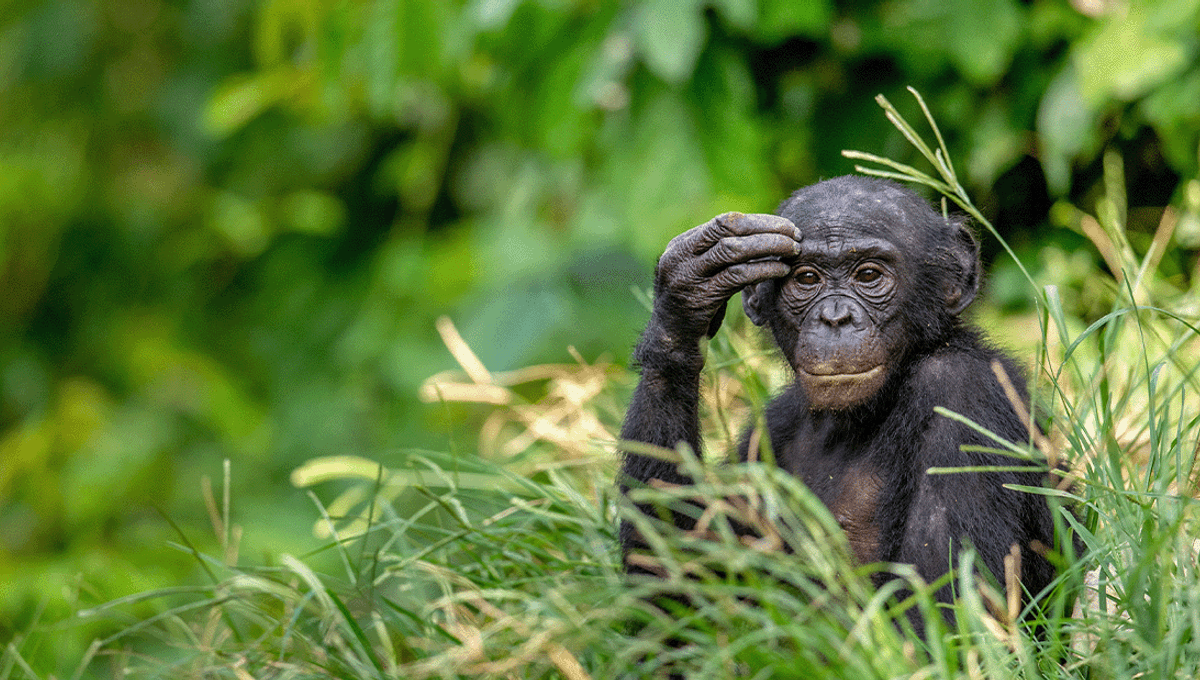
Working out how smart or intelligent your partner is, in any given task, is a tricky skill at the best of times. This type of intelligence to have forethought about the state of mind of others is something seen in people but not in non-human apes. It is known as “the theory of mind” and now, researchers are looking at bonobos to see if they can adjust their actions based on what they think another knows.
ADVERTISEMENT GO AD FREE
To judge this, the team set up a simple experiment involving three cups and three different bonobos: Nyota, 25; Kanzi, 43; and Teco, 13. The bonobo watches as a human places a reward under one of the cups – either a grape or a Cheerio. To receive the reward, however, a second human must correctly find the reward under the cup and give it to the bonobo. In some experiments, the screen between the bonobo and the second person was clear and in other trials, the screen was solid. This experiment setup meant that the bonobo always knew which cup the food was under, and also knew whether the second human had that same knowledge or not.
“The ability to sense gaps in one another’s knowledge is at the heart of our most sophisticated social behaviors, central to the ways we cooperate, communicate, and work together strategically,” said co-author Chris Krupenye, a Johns Hopkins assistant professor in the Department of Psychological and Brain Sciences who studies how animals think, in a statement.
After a familiarization period, where a baseline level of pointing was established, the team moved on to the trials. The most important aspect was whether the bonobos acted differently when they knew that their human partner did not know where the food was. After 10 seconds, the question “Where is the grape/Cheerio?” would be asked, and the ape would point to the cup with the reward underneath, if the human had not seen where the reward was placed.
The experiment found that when the human partner did not know which cup the food was under, the bonobos pointed more. “Their fingers would point right through the mesh – it was clear what they were trying to communicate,” Krupenye said. “One, Kanzi, who was very food motivated, would point repeatedly in certain phases of the experiment – he’d tap several times to get our attention and was quite insistent about it.”
The team suggests that not only are the bonobos aware of the knowledge that the human partner has, but they can also act accordingly to work with the human partner to get the reward.
“The results also suggest apes can simultaneously hold two conflicting world views in their mind. They know exactly where the food is, and at the same time, they know that their partner’s view of the same situation is missing that information,” Krupenye said. This replicates wild interactions in which bonobos may point out a threat such as a snake to other members of the group.
ADVERTISEMENT GO AD FREE
The team plans to investigate further: Now that they know apes can communicate to change others’ behavior based on knowledge, they want to explore whether they can change their “mental state or beliefs”.
The paper is published in PNAS.
Source Link: Bonobos Can Work Out What You Know, And Also What You Don't